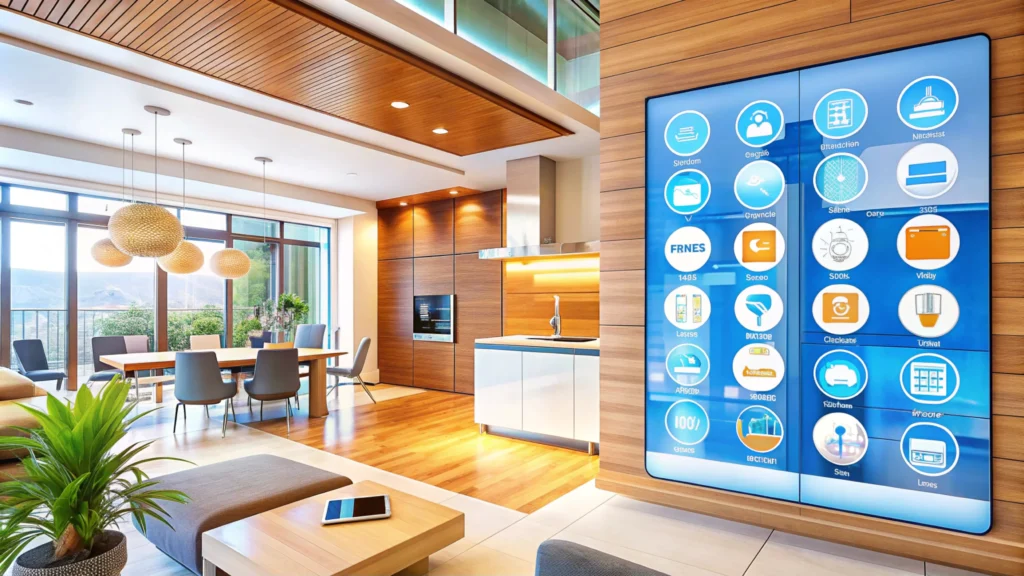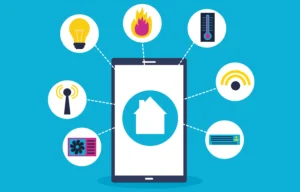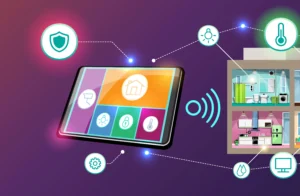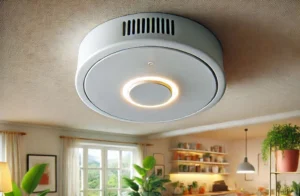Best Smart Home Hubs in 2025: The Ultimate Guide to Seamless Automation

Best Smart Home Hubs in 2025: The Ultimate Guide to Seamless Automation
Table of Contents
Smart home hubs are no longer a luxury; they’re essential for creating a truly integrated and automated living space. As we move further into 2025, these hubs have evolved dramatically, boasting AI-powered intelligence, broader device compatibility, enhanced security protocols, and intuitive user interfaces. This guide explores the top smart home hubs available, helping you choose the perfect central brain for your connected home.
Why You Need a Smart Home Hub in 2025
Imagine a symphony orchestra where each musician plays beautifully, but without a conductor, the performance lacks harmony and coordination. A smart home hub functions as that conductor, orchestrating the interactions between your numerous smart devices. Without a dedicated hub, you’re likely juggling multiple apps, wrestling with conflicting protocols, and missing out on the full potential of home automation.
Here’s why a smart home hub is indispensable in 2025:
- Unified Control: Say goodbye to app overload! A smart home hub provides a single, centralized platform to manage and monitor all your connected devices, from smart lights and thermostats to security cameras and entertainment systems. This unified approach streamlines your smart home experience, making it easier to control and customize.
- Enhanced Automation: Go beyond basic on/off controls. Smart hubs enable sophisticated automation routines that trigger actions based on a variety of factors, including time of day, sensor readings, location, and even AI-driven predictive analysis. Picture your lights automatically dimming as the sun sets, your thermostat adjusting based on occupancy, or your security system arming itself when you leave the house.
- Unmatched Compatibility: The smart home landscape is a diverse ecosystem of devices using different communication protocols like Zigbee, Z-Wave, Wi-Fi, Bluetooth, and the emerging Matter standard. A smart home hub bridges these divides, ensuring devices from different manufacturers can seamlessly communicate and work together, regardless of their underlying technology.
- Robust Security: Security remains a top priority. Modern smart hubs incorporate advanced security measures such as end-to-end encryption, two-factor authentication, and local processing capabilities to protect your data and prevent unauthorized access. Choose a hub with robust security features to safeguard your privacy and peace of mind.
- Voice Control Integration: Seamlessly integrate with your favorite voice assistant, whether it’s Alexa, Google Assistant, or Siri. Control your smart home with simple voice commands, making your life even more convenient and hands-free.
With the ever-increasing array of smart home devices available, a smart hub is crucial for simplifying management, maximizing performance, and creating a truly integrated and intelligent smart home experience.
For a deeper dive into smart home security, check out our guide on Best Smart Home Security Systems in 2025.
Comparison Table: Best Smart Home Hubs
| Smart Hub | Key Features | Smart Home Compatibility | Best For |
|---|---|---|---|
| Amazon Echo Hub | Alexa integration, voice control, Zigbee | Alexa, Matter, Zigbee | Best for Alexa users |
| Samsung SmartThings Hub | Multi-protocol support, automation | Alexa, Google, Zigbee, Z-Wave | Best for automation |
| Apple HomePod Mini | Siri integration, secure connections | HomeKit | Best for Apple users |
| Google Nest Hub Max | Google Assistant, touchscreen display | Google, Matter, Nest | Best for Google users |
| Aeotec SmartThings Hub | Z-Wave and Zigbee compatibility | Alexa, Google, Zigbee, Z-Wave | Best for smart home expansion |

Top Smart Home Hubs in 2025: A Detailed Look
Here’s a closer examination of some of the leading contenders in the smart home hub market in 2025:
Amazon Echo Hub (5th Generation)
The Amazon Echo Hub remains a powerhouse for those deeply invested in the Amazon ecosystem. This all-in-one hub seamlessly integrates with Alexa, providing voice control, automation capabilities, and broad device compatibility.
Key Features:
- Alexa Voice Control: Effortlessly control your smart devices with voice commands, ask questions, play music, and manage your schedule.
- Built-in Zigbee and Matter Support: Connect directly to Zigbee-enabled devices and supports the new Matter standard for interoperability across different platforms.
- Routine Automation Mastery: Create custom automation routines that trigger actions based on time, voice commands, or the status of other devices. For example, create a “Goodnight” routine that turns off the lights, locks the doors, and sets the thermostat.
- Extensive Device Compatibility: Works with an enormous library of Alexa-compatible smart devices from leading brands.
- Enhanced Security Features: Features like Alexa Guard can detect unusual sounds, such as breaking glass or smoke alarms, and send alerts to your smartphone.
- AI-Powered Learning: The latest Echo Hub learns your habits and preferences over time, offering personalized recommendations and proactive automation suggestions.
Who Should Choose This?: Ideal for users heavily invested in the Amazon Alexa ecosystem who want an intuitive, versatile, and voice-centric smart home experience.
Considerations: Privacy concerns surrounding Amazon’s data collection practices.
Samsung SmartThings Hub (v4)
The Samsung SmartThings Hub is renowned for its versatility and broad compatibility, making it a great choice for those with a diverse range of smart home devices.
Key Features:
- Multi-Protocol Connectivity: Supports Zigbee, Z-Wave, Wi-Fi, Bluetooth, and Matter, ensuring compatibility with a wide variety of devices.
- Advanced Automation Engine: Create complex and customized automation routines based on sensor triggers, time schedules, location, and even predictive analytics.
- Local and Cloud Processing: Offers the best of both worlds, processing commands locally for faster response times and increased reliability, while also utilizing cloud services for advanced features and remote access.
- SmartThings Find: Locate misplaced smart devices quickly with integrated device tracking.
- Enhanced Security: Built-in security protocols and regular firmware updates to protect your smart home from unauthorized access.
Who Should Choose This?: Ideal for users who want maximum device compatibility, advanced automation capabilities, and the flexibility to customize their smart home experience.
Considerations: The SmartThings ecosystem can be complex to navigate for beginners.
For more insights on smart automation, read our article on Best Smart Home Sensors for 2025.
Apple HomePod Mini (2nd Generation)
The Apple HomePod Mini is the quintessential choice for Apple enthusiasts seeking seamless integration with HomeKit. It prioritizes security, privacy, and ease of use within the Apple ecosystem.
Key Features:
- Siri Voice Control: Effortlessly control HomeKit-enabled smart devices using Siri voice commands.
- Effortless HomeKit Integration: Works seamlessly with a vast ecosystem of HomeKit-enabled smart devices, providing a unified and consistent experience.
- Superior Audio Quality: Doubles as a high-quality smart speaker for enjoying music, podcasts, and audiobooks.
- End-to-End Encryption: Ensures robust security and privacy by processing commands locally and encrypting all communications.
- Thread Support: Communicate directly with other Thread-enabled devices for improved range and reliability.
Who Should Choose This?: Ideal for Apple users who prioritize security, privacy, and seamless integration with the HomeKit ecosystem.
Considerations: Limited compatibility with devices outside the HomeKit ecosystem.
For Apple HomeKit enthusiasts, check out Which Smart Home Brand is Right for You?.
Google Nest Hub Max (2nd Generation)
The Google Nest Hub Max is a multifunctional smart hub featuring a vibrant touchscreen display, making it a central control point for your entire smart home.
Key Features:
- Google Assistant Integration: Control smart devices, ask questions, play music, and manage your day with Google Assistant voice commands.
- Interactive Touchscreen Display: Visually control devices, view security camera feeds, make video calls, and stream media.
- Matter Integration: Ensure future compatibility with the Matter smart home standard.
- Built-in Security Camera: Doubles as a security camera with facial recognition capabilities (optional) and motion detection.
- Environmental Monitoring: Track room temperature and humidity levels to optimize comfort and energy savings.
Who Should Choose This?: Ideal for users who want a visual control interface, seamless Google Assistant integration, and a multifunctional smart hub.
Considerations: Privacy concerns surrounding Google’s data collection practices.
If you’re interested in improving home security, check out our guide on Best Video Doorbells in 2025.
Aeotec SmartThings Hub:
For users looking for maximum flexibility and expandability, the Aeotec SmartThings Hub provides robust compatibility with Zigbee and Z-Wave devices, offering a powerful foundation for a customized smart home.
Key Features:
- Multi-Protocol Support: Works with Zigbee, Z-Wave, Wi-Fi, and Matter devices, providing unparalleled compatibility.
- Advanced Home Automation: Enables highly customizable smart routines and integrations, allowing you to create a truly personalized smart home experience.
- Voice Control Integration: Compatible with both Alexa and Google Assistant for voice control capabilities.
- Local Processing: Processes many automation routines locally, ensuring faster response times and greater reliability.
- Compact Design: Smaller and more discreet design than previous SmartThings Hubs.
Who Should Choose This?: Ideal for users who want maximum compatibility, advanced automation capabilities, and the flexibility to build a customized smart home.
Considerations: Requires some technical knowledge to set up and configure advanced features.
Conclusion: Building the Smart Home of the Future
The landscape of smart home hubs in 2025 is defined by greater interoperability, AI-powered functionalities, and robust security features. Whether you’re an Alexa aficionado, a Google devotee, or an Apple purist, there’s a smart home hub to perfectly align with your preferences.
Key Takeaways for Choosing a Smart Home Hub in 2025:
- Ecosystem Alignment: Choose a hub that seamlessly integrates with the smart devices you already own or plan to purchase.
- Protocol Compatibility: Opt for a hub that supports the communication protocols used by your devices (Zigbee, Z-Wave, Wi-Fi, Matter).
- Automation Capabilities: Evaluate the hub’s automation engine and ensure it meets your needs for custom routines and schedules.
- Security Measures: Prioritize a hub with robust security features, such as encryption and local processing, to protect your data.
- Voice Control Integration: Choose a hub that is compatible with your preferred voice assistant.
Investing in the right smart home hub is an investment in the future of your home, simplifying automation, improving compatibility, and making your living space more efficient, secure, and enjoyable.
Call to Action
Ready to upgrade your smart home? Explore our best smart home hubs and choose the one that best fits your lifestyle. For more smart home guides, visit Tedotrip.com.
More Posts

How to Set Up a Smart Home on a Budget (Step-by-Step Guide)?
How to Set Up a Smart Home on a Budget (Step-by-Step Guide)? Table of Contents Imagine waking up to a home that’s already brewing your coffee, adjusting the thermostat to your perfect temperature, and turning on the lights—all without you lifting a finger. Sounds expensive, right? Not anymore! Smart homes aren’t just for tech millionaires

Essential Smart Home Apps for iOS and Android Users
Essential Smart Home Apps for iOS and Android Users Table of Contents Smart home technology has revolutionized how we interact with our living environments, moving beyond simple convenience to offer unprecedented levels of control and automation. Imagine a world where your home anticipates your needs, managing everything from adjusting the temperature to securing your property

Top 5 Free Smart Home Apps That Actually Work!
Top 5 Free Smart Home Apps That Actually Work! Table of Contents Introduction: Why Free Smart Home Apps Matter Smart homes are no longer a futuristic concept limited to tech enthusiasts or luxury homeowners. Today, anyone can enhance their living spaces with smart devices that bring automation, convenience, and energy efficiency. However, one challenge that

Best Smart Smoke Detectors in 2024: Enhance Your Home’s Safety
Best Smart Smoke Detectors in 2024: Enhance Your Home’s Safety Table of Contents Introduction In 2024, ensuring the safety of your home has never been more high-tech and convenient, thanks to the latest advancements in smart smoke detectors. These devices go beyond traditional smoke alarms by offering real-time alerts, integration with your smart home ecosystem,
